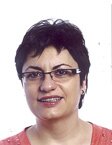
Centre for Cultural, Policy and Society Studies (CECUPS), Spain
Founded in 1450, The University of Barcelona is ranked among the top highest public universities in Spain, in terms of both the quality of the teaching it offers and the productivity and quality of the research carried out by its members. The UB has 109 departments and more than 5,000 full-time researchers, technicians and research assistants, most of whom work in the UB’s 249 research groups as recognized and supported by the Generalitat de Catalunya (Catalan Government). In the area of research, the University of Barcelona has maintained its position as the top Spanish university in the most renowned international rankings and it has continued to improve the overall position as well. As a result, the UB was named to the prestigious League of European Research Universities (LERU) on 1 January 2010, making the UB the only Spanish university to become a member of that esteemed association. In 2009, the UB, together with the Technical University of Catalonia (UPC), won the distinction of Campus of International Excellence for our joint project Barcelona Knowledge Campus (BKC), and in 2010 the UB again won recognition for its project Health Universitat de Barcelona Campus (HUBc).
The research activities for the project will be conducted by the research team about Citizenship, Politics and Welfare, within the Center for the Study of Culture, Politics and Society (CECUPS) of the Department of Sociological Theory. CECUPS is one of the research centers at the University of Barcelona, which is also consolidated by the Catalan Government. It integrates sociologists, political scientists and other social researchers belonging to different Spanish universities. Their common goal is to foster knowledge in this area. Recognizing the complexity of this challenge CECUPS and their members work at different levels. First and foremost CECUPS focuses on doing high standard academic research. At the same time, however, it also focuses on providing research training as well as on promoting their subjects within the scientific community and within the public sphere. The CECUPS is devoted to the sociological analysis of cultural and political subjects, in particular subjects placed in the confluence of those two realms or dimensions of social reality. In this way, and mainly from a comparative perspective, it makes research about five main lines: (1) Cultural policy, (2) Art, culture and territory, (3) Culture and social change, (4) Citizenship, politics and Welfare and (5) Comparative sociology of modernity. The most relevant research carried out in the topic of “Citizenship, politics and welfare” through Teresa Montagut, are The Evaluation of Social Policies against Social Exclusion at the Local Urban Level (1996-1998); Evaluation of Good Practices for equality of opportunities for women (1997); The Third Sector and the Development of European Public Policy (TSEP, 2002-2005); and, in Spanish, “Ciudadania proactiva: los retos de la democracia” (Proactive Citizenship) (2001- 2004), “El impacto del Tercer Sector aragonés en las areas de Educación, Salud y Bienestar Social” (The Aragon Third Sector in Education, Health and Social Welfare fields) (2004) “Els reptes del Tercer Sector a Barcelona ciutat en l’àrea d’infància” (The challenge of the Third Sector in the city of Barcelona in young areas).
Teresa Montagut
The head of the team, Teresa Montagut, is full professor of Social Policy and Economic Sociology at the University of Barcelona. She holds a master’s degree in Economics and received her doctorate in Sociology at the University of Barcelona. She is involved in Third Sector and Citizenship research and participated in the Third Sector European Policy (TSEP) project. Her publications include issues of social policies, gender studies, voluntary and third sector organizations, and democracy and citizenship. She is member of the Centre Estudis sobre Cultura Política i Societat (CECUPS) Research Group of the University of Barcelona.
Contact information: Maite Montagut , Web CECUPS
Other members
Manuel Aguilar Hendrickson
Sociologist, he teaches at the University of Barcelona. His main research interests have to do with personal social services and social care. He has taken part in several research projects on social exclusion, minimum income and integration programmes and he presently focuses on the institutional arrangements of social services in Spain in a comparative perspective.
Marta Llobet Estany
Sociologist, Lecturer at the University of Barcelona and a member of the Centre de recherche de Montréal sur les inégalités sociales et les discriminations (CREMIS). Her research has focused on community development, organization and mediation, the analysis of social work practice and social exclusion, and the squatter movement. She has taken part of PROXCIT project on outreach and citizenship in Quebec, Netherlands and Catalonia.
Cristina López
Degree in Geography and History. PhD in Sociology. Lecturer at the Unviersity of Barcelona. Her research has focused on Urban Demography, Housing, Migrations and Residential Mobility.

Gemma Vilà
Sociologist and Lecturer at the Department of Sociological Theory, Philosophy of Law and Methodology of Social Sciences at the University of Barcelona where she is teaching and researching. Her research topics have focused on urban sociology, urban and population studies and social structure.
Anna Escobedo
Lecturer at the Department of Sociology and Organisational Analysis of the University of Barcelona (UB, Spain). Her research focuses on comparative social policy, family and social change – with a special emphasis on the work-life balance; the relationship between formal and informal work; and professional developments in care work and care services. She is member of the International Network on Leave Policies and Research (www.leavenetwork.org).
Sebastià Riutort
Sociologist, PhD student in Sociology at the University of Barcelona (FPU fellow in the Department of Sociological Theory). His research focuses on strategies and processes of social innovation articulated by new cooperative initiatives particularly in the field of renewable energy sources: the diffusion of their model and their institutionalisation possibilities. He has also been involved as assistant in the project RESCOOP 20-20-20 supported by Intelligent Energy Europe Program (2012-2015, IEE).











